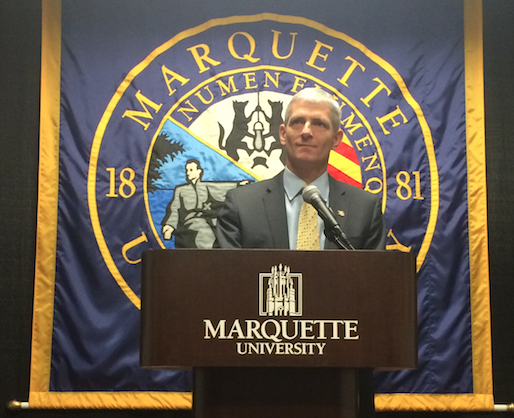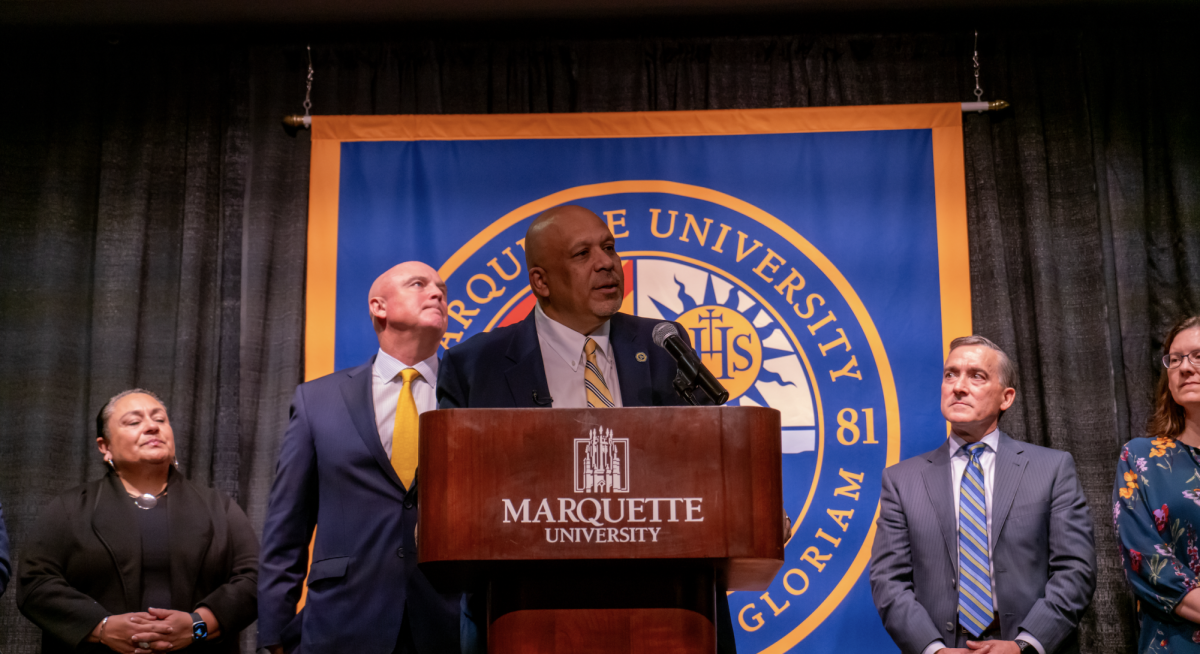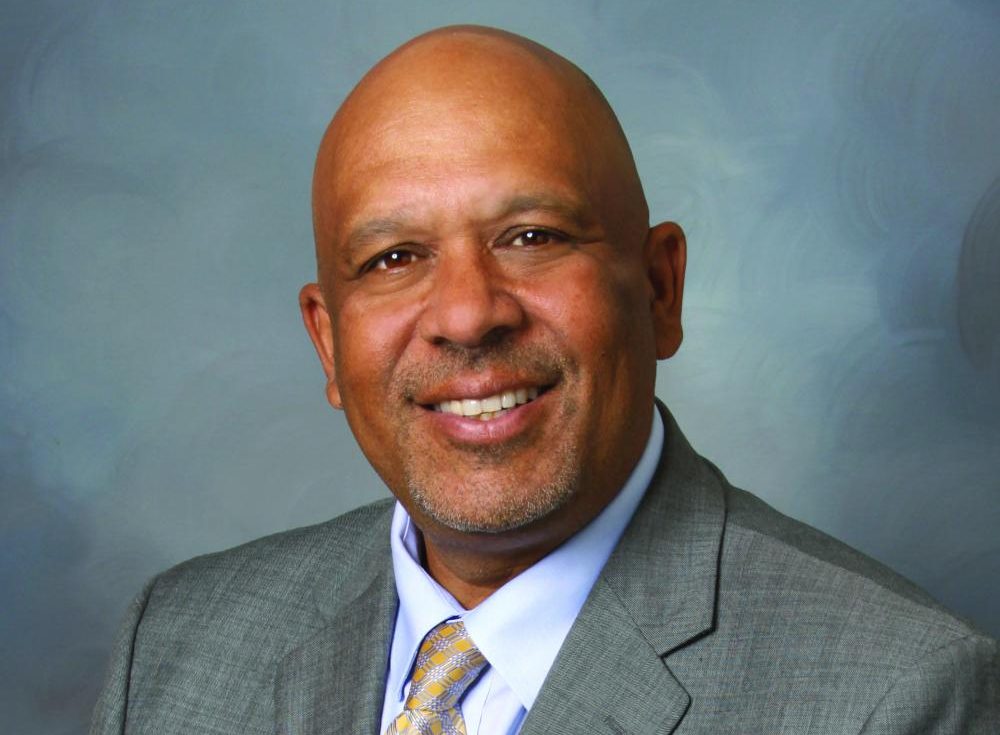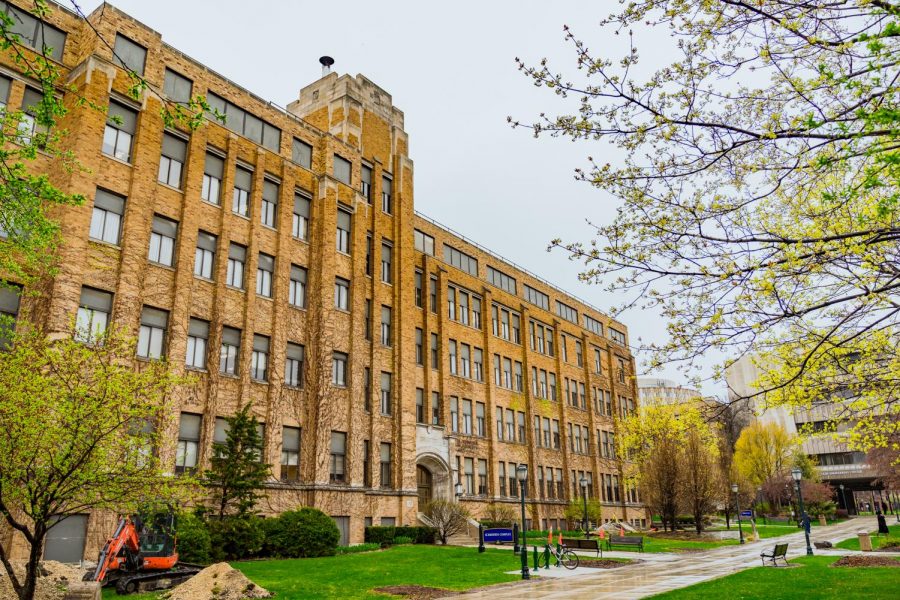Marquette is taking on the goal to double its research funding over the next five years, University President Michael Lovell said in his Jan. 29 State of the University address.
Lovell named Jeanne Hossenlopp, former vice provost for research and current dean of the graduate school, as the vice president for research and innovation. As a result of this change, Lovell announced he will split the graduate dean and vice president of research and innovation positions, with Hossenlopp solely serving as vice president for research and innovation and Kevin Gibson serving as interim dean for the graduate school.
“The vice president for research and innovation will be responsible for doubling the research and helping innovation entrepreneurship to grow on our campus,” Lovell said during the address.
“Increasing research funding will enable Marquette to grow its efforts in support of our academic mission,” Hossenlopp said in an email. “As vice president for research and innovation, one of my most important roles is to help the university community build research funding to support the scholarly work of our faculty, students and staff.”
Marquette’s research and development expenditures increased from $9.7 million in 2007 to $20.9 million last year, according to the National Science Foundation. These figures include funds from both internal and external sources and Hossenlopp said the numbers are one of the key metrics the university tracks. The university hopes to double the number in the next five years and Hossenlopp said increased external research support is one of the keys to meeting this goal.
“Research funding comes from a variety of sources and we are looking specifically to increase the contribution of external sources,” Hossenlopp said. “The Office of Research and Sponsored Programs coordinates the processing of extramural grants, contracts and cooperative agreements, as well as licensing of intellectual property (patents). ORSP works with faculty and staff to submit grant applications that support research as well as instructional projects. Grant or contract funds for research can come from governmental sources (federal, state), foundations or corporations.”
Hossenlopp said federal support includes the National Institutes of Health and the National Science Foundation, which are two major sources of research funding at Marquette. Additionally, foundations and individuals can also support research through gifts, which are handled by University Advancement. For example, the university’s Way Klingler endowment provides support for faculty research through Way Klingler Faculty Fellowships.
Students are frequently involved in these same funded research products. According to ORSP, in the past fiscal year, students were involved in 172 different active products with total expenditures for student research support totaling over $2.75 million.
“Research is an integral training component in graduate programs and is also an example of a high-impact practice in undergraduate education,” Hossenlopp said. “Increased funding will enable more student participation in research activities on campus.”










